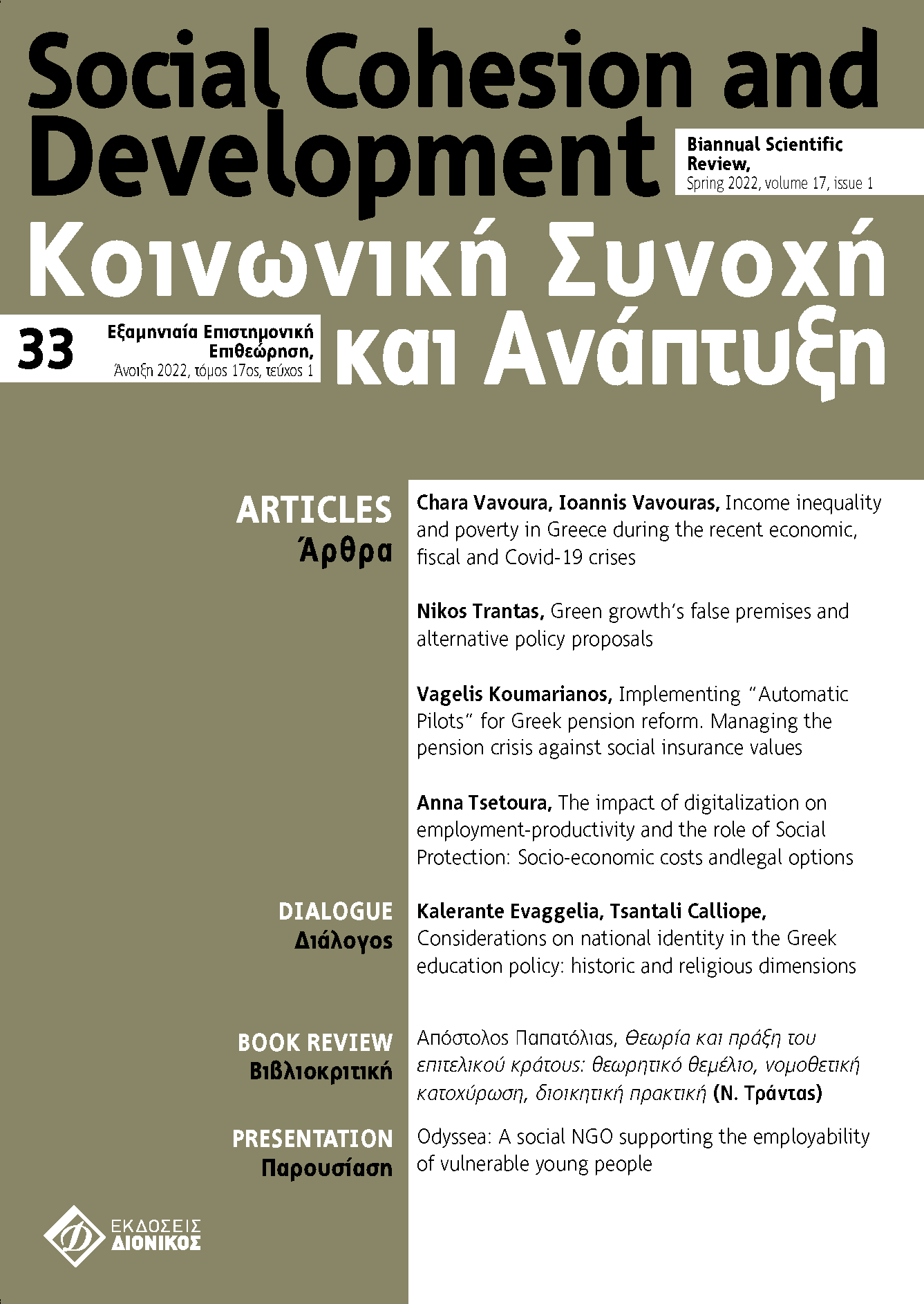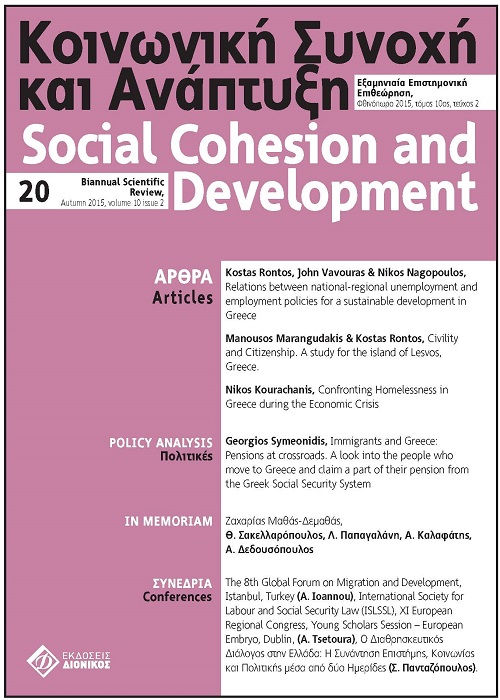Ο αντίκτυπος της ψηφιοποίησης στην απασχόληση- παραγωγικότητα και ο ρόλος της κοινωνικής προ- στασίας: Κοινωνικο-οικονομικά κόστη και νομικές επιλογές

Abstract
To άρθρο εκκινά αποτυπώνοντας την ψηφιοποίη-
ση της εργασίας. Τα αρνητικά αποτελέσματα είναι
τα πρώτα που εξετάζονται και στη συνέχεια παρου-
σιάζονται τα θετικά αποτελέσματα. Πέντε άξονες
με αμφίπλευρες συνέπειες (αρνητικές και θετικές)
προκύπτουν από την ανάλυση της ψηφιοποίησης
στην απασχόληση και την παραγωγικότητα. Επι-
πλέον, απεικονίζονται οι επιπτώσεις της ψηφιακής
εργασίας στην κοινωνική ασφάλιση, καθώς και
τα νομικά κενά σε εθνικό, ευρωπαϊκό και διεθνές
επίπεδο. Τέλος, καταλήγουμε σε προτάσεις που θα
μπορούσαν να αντισταθμίσουν τις αρνητικές επι-
πτώσεις και να ενισχύσουν τις θετικές με τη χρήση
τεχνικών από την ευρωπαϊκή έννομη τάξη.
Article Details
- Zitationsvorschlag
-
Tsetoura, A. (2024). Ο αντίκτυπος της ψηφιοποίησης στην απασχόληση- παραγωγικότητα και ο ρόλος της κοινωνικής προ- στασίας: Κοινωνικο-οικονομικά κόστη και νομικές επιλογές. Social Cohesion and Development, 17(1), 53–66. https://doi.org/10.12681/scad.32233 (Original work published 1. März 2022)
- Ausgabe
- Bd. 17 Nr. 1 (2022): No 33
- Rubrik
- Articles

Dieses Werk steht unter der Lizenz Creative Commons Namensnennung - Nicht-kommerziell - Weitergabe unter gleichen Bedingungen 4.0 International.
Authors who publish with this journal agree to the following terms:
- Authors retain copyright and grant the journal right of first publication with the work simultaneously licensed under a Creative Commons Attribution Non-Commercial License that allows others to share the work with an acknowledgement of the work's authorship and initial publication in this journal.
- Authors are able to enter into separate, additional contractual arrangements for the non-exclusive distribution of the journal's published version of the work (e.g. post it to an institutional repository or publish it in a book), with an acknowledgement of its initial publication in this journal.
- Authors are permitted and encouraged to post their work online (preferably in institutional repositories or on their website) prior to and during the submission process, as it can lead to productive exchanges, as well as earlier and greater citation of published work (See The Effect of Open Access).





